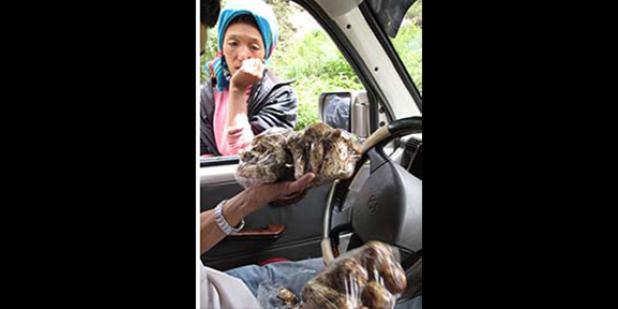Join us for a free one-day workshop for educators at the Japanese American National Museum, hosted by the USC U.S.-China Institute and the National Consortium for Teaching about Asia. This workshop will include a guided tour of the beloved exhibition Common Ground: The Heart of Community, slated to close permanently in January 2025. Following the tour, learn strategies for engaging students in the primary source artifacts, images, and documents found in JANM’s vast collection and discover classroom-ready resources to support teaching and learning about the Japanese American experience.
Making Matsutake Worlds: A Transnational Commodity Chain from Southwest China
UC Berkeley Institute of East Asian Studies hosts a talk with Michael Hathaway
Where

Speaker: Michael Hathaway, Anthropology, Simon Fraser University
Panelist/Discussant: You-tien Hsing, Chair, CCS; Professor, Geography, UCB
Sponsors: Center for Chinese Studies (CCS), Institute of East Asian Studies
Environmental China Colloquium 2
This talk engages with the ways a wild mushroom, the matsutake, has an active materiality and liveliness that shapes the ways a commodity network is built up around it and with it, especially as it moves between the high mountains of Southwest China to urban markets in Japan. This mushroom has now become the leading agricultural export for Yunnan Province, and the matsutake economy employs hundreds of thousands of people. It draws on my work with the Matsutake Worlds Research Group, a collaborative group of six anthropologists who explore the worlds fostered by this mushroom. We work in the U.S. Pacific Northwest, Scandinavia, China and Japan, investigating how a wide range of people engage with the matsutake, as pickers, dealers, scientists and consumers. In this talk, I ask how we might look at both human and non-human particularities to understand commodities in different ways. How do ethnic Yi and Tibetan pickers engage differently with this influential economy? In terms of the mushroom itself, how does the presence of other species, such as insects who seek out the mushroom as food and hunting ground create new challenges for humans? How did the mushroom’s strong attraction to radioactivity impinge upon its circulation following the disastrous Fukushima accident?
Event Contact: ccs@berkeley.edu, 510-643-6321
Featured Articles
Please join us for the Grad Mixer! Hosted by USC Annenberg Office of International Affairs, Enjoy food, drink and conversation with fellow students across USC Annenberg. Graduate students from any field are welcome to join, so it is a great opportunity to meet fellow students with IR/foreign policy-related research topics and interests.
RSVP link: https://forms.gle/1zer188RE9dCS6Ho6
Events
Hosted by USC Annenberg Office of International Affairs, enjoy food, drink and conversation with fellow international students.
Join us for an in-person conversation on Thursday, November 7th at 4pm with author David M. Lampton as he discusses his new book, Living U.S.-China Relations: From Cold War to Cold War. The book examines the history of U.S.-China relations across eight U.S. presidential administrations.




